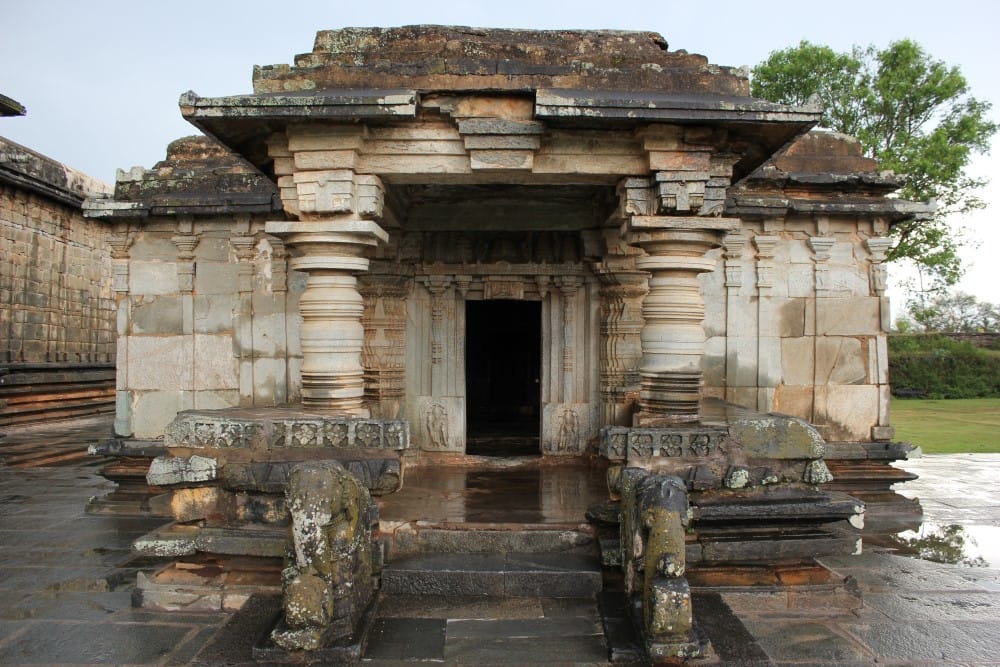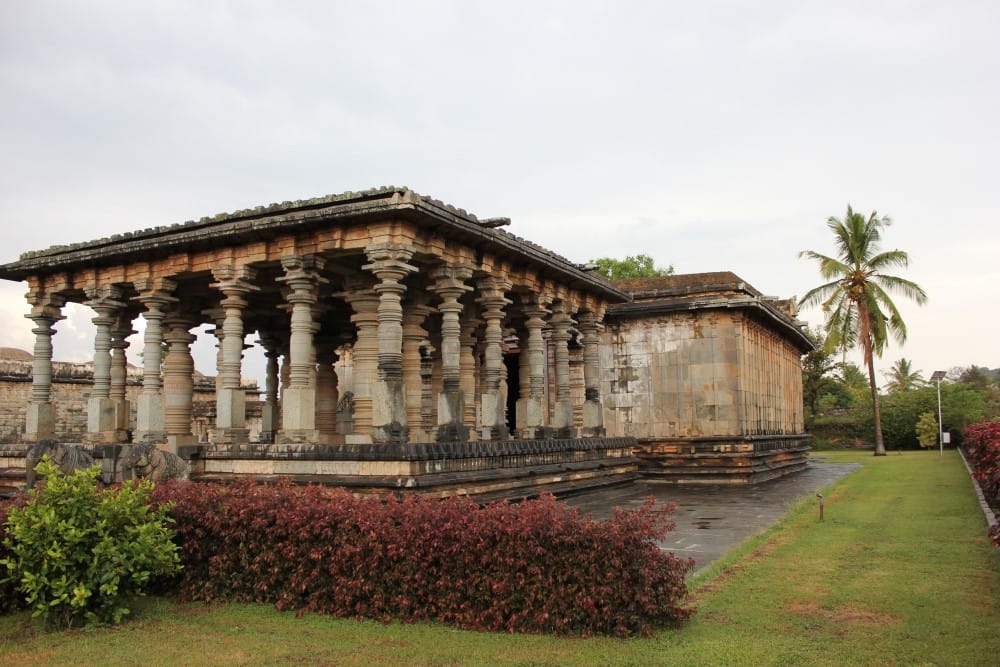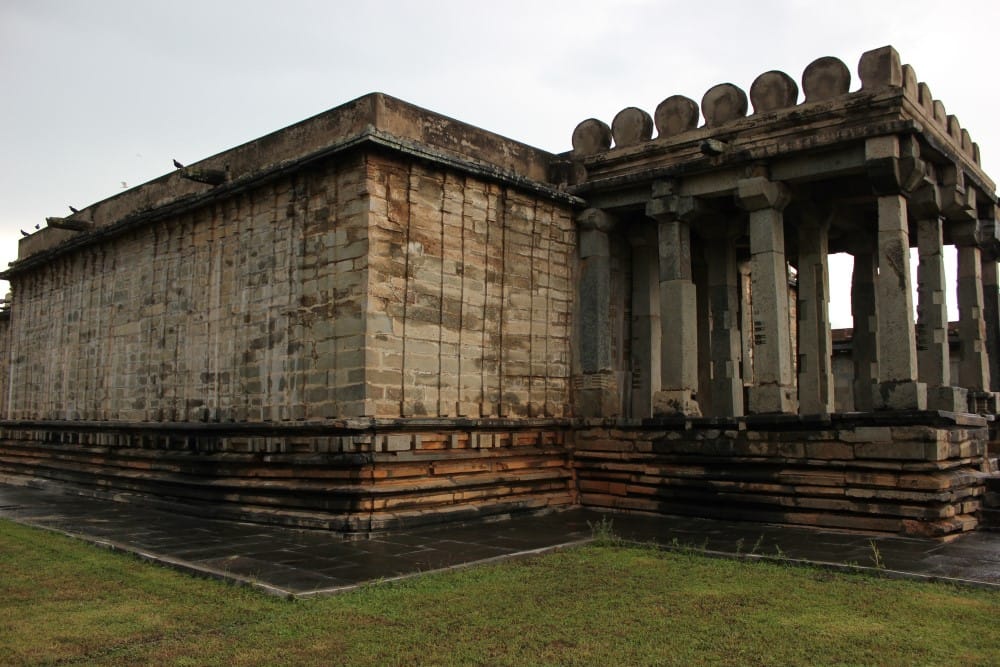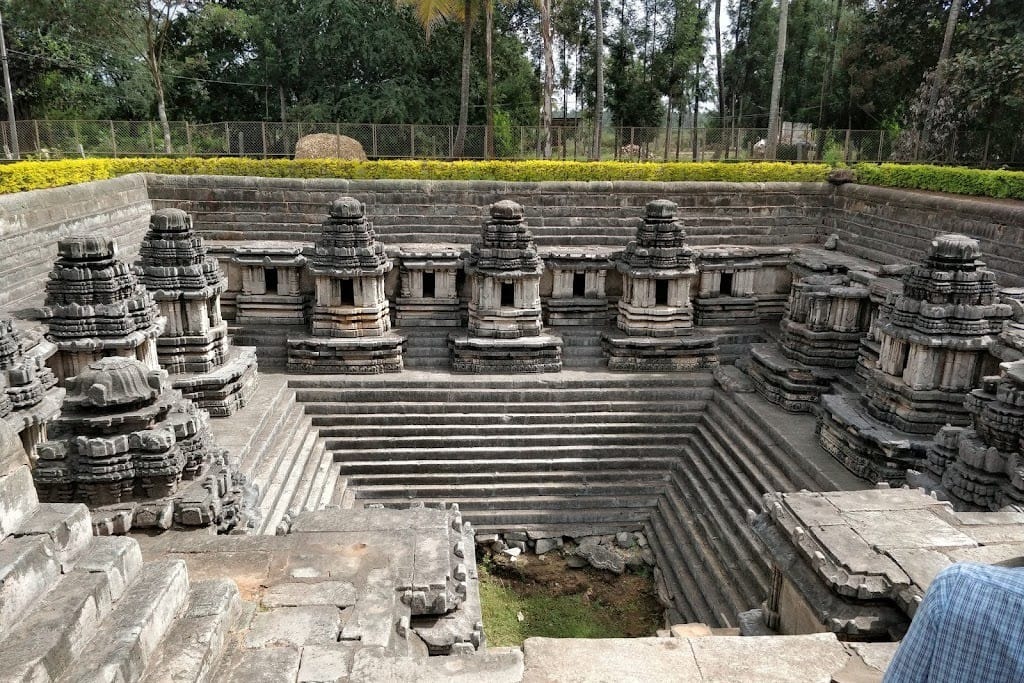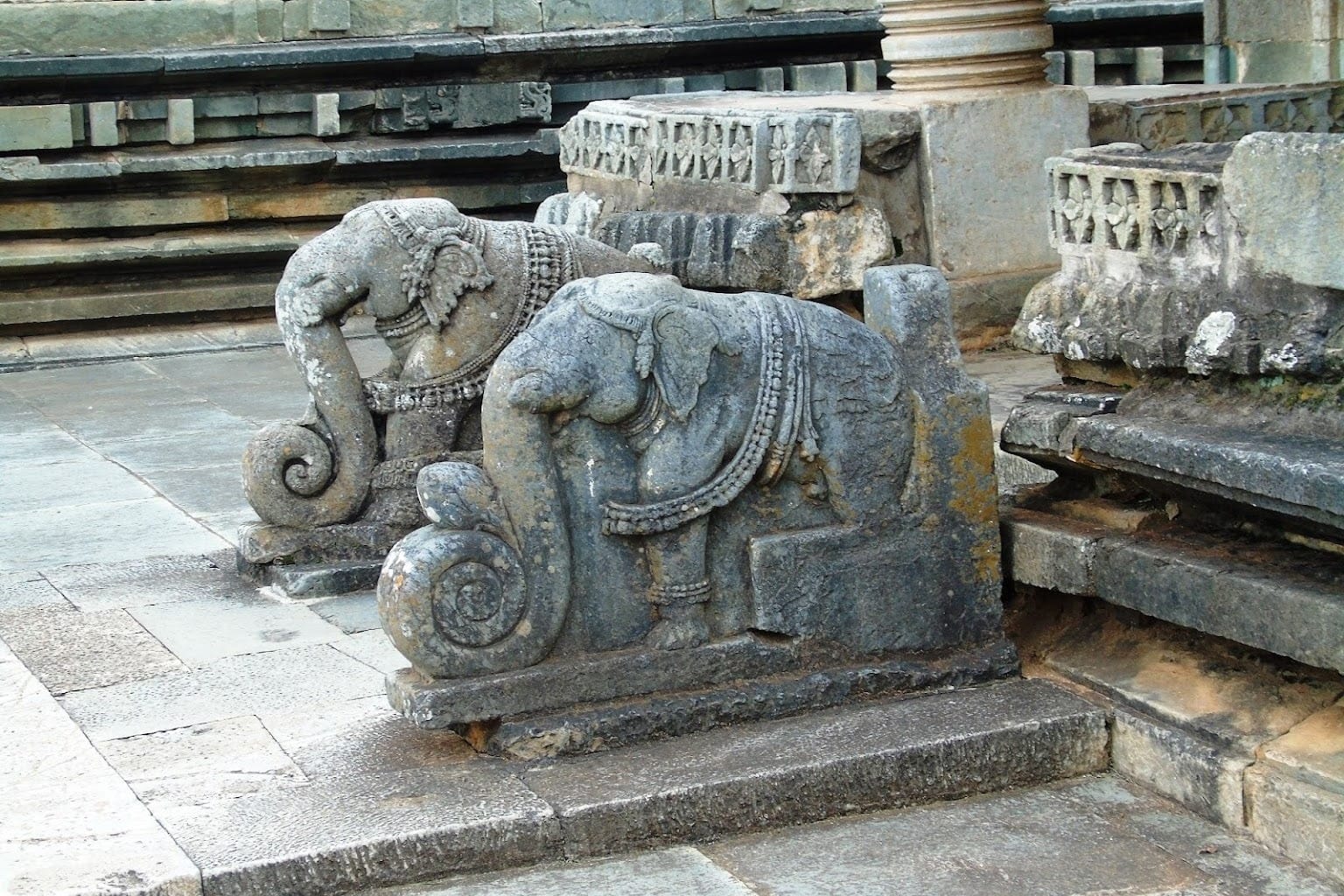The Jain Basadi complex at Halebid in Hassan district is a place dedicated to the Jain tirthankars Parswanatha, Shantinath and Adinath. The Jain Basadi complex is located near the Kedareshwar temple and the Dwarasamudra lake. These temples were built in the 12th century during the reign of the Hoysala Empire.
The Jain Basadi complex is 215.5 kilometers from Bangalore and 31.5 kilometers from Hassan. This Jain Basadi complex is located at a distance of 27 kilometers from Hassan railway station.
History
Halebidu was the capital of the Hoysala Empire, and Jainism maintained a strong presence in the region from the 11th to the 14th century. During the rule of the Hoysalas, this region was known as Dwarasamudra. The most important king of the Hoysala Empire was Bittaga, whose later name was Vishnuvardhana. Bittiga is considered to be the greatest ruler of the Hoysala Empire and was a Jain until about 1115. Later he converted to Vaishnavism under the influence of Hindu saint Ramanujacharya. During his rule, Hinduism and Jainism co-existed in great religious harmony. Vishnuvardhana’s (Bittiga) wife Shanthaladevi remained a follower of Jainism. In later times this temple was maintained by the Maharajas of Mysore.
Parswanath Basadi was built by Boppadeva in 1733 AD during the reign of King Vishnuvardhana. Boppadeva was the son of the Ganga Raja who was the minister of the Hoysala king Vishnuvardhana.
Shantinath Basadi was built during the reign of Veerballa II in 1192 CE.
Adinath Basadi is the smallest of the Jain basadis and a 12th-century monolith of Bahubali was erected inside this temple. But now this monolith is displayed outside the Halebidu museum.
Visit Also
